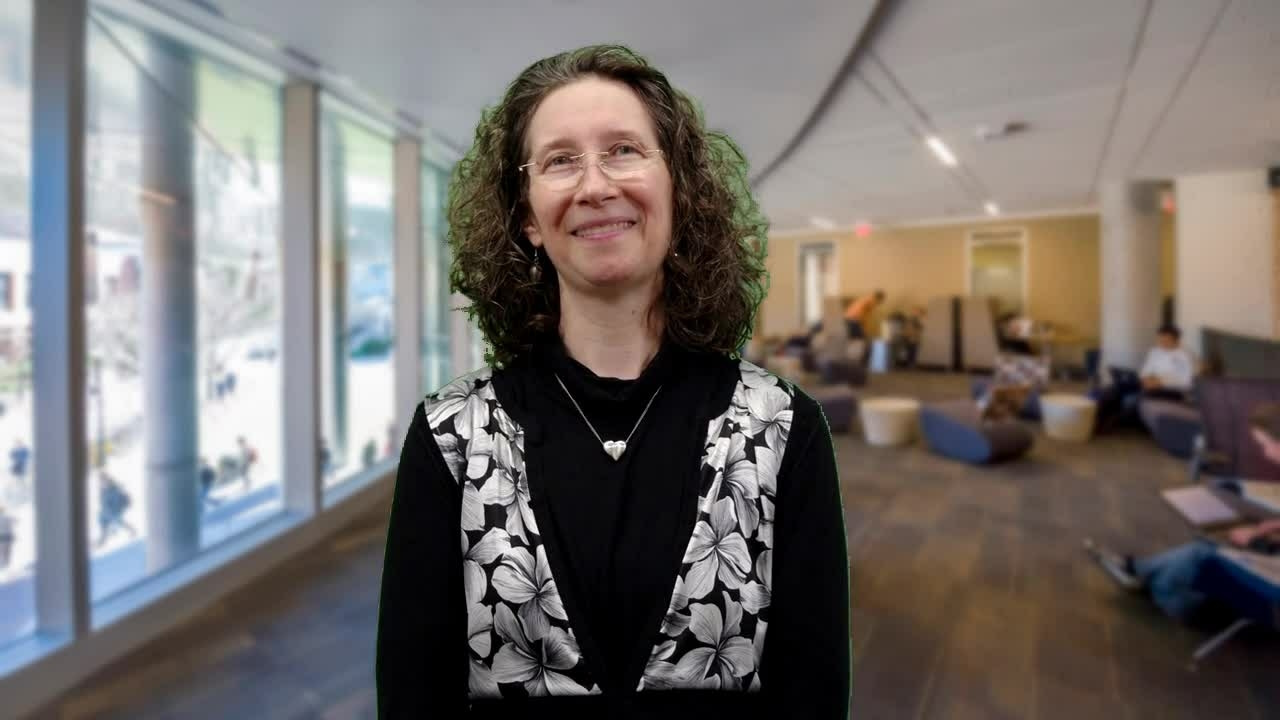Why Middlebrooks chooses open: cost, learning, diversity

The interview series “Why We Choose Open: OER Stories” invites VCU community members to share why they use, adapt or create Open Educational Resources (OER) and what impact that work has on their students, teaching experiences, and/or career.
Faculty: Laura Middlebrooks, Teaching Assistant Professor, School of World Studies
Resource: Taller Real (Recursos Educativos Abiertos y Libres) BETA was created for use in Virginia Commonwealth University’s fourth-semester Spanish course, SPAN 202, in which students study inclusivity (la inclusividad), health and wellbeing (la salud y el bienestar), career paths and professionalism (las carreras y el profesionalismo) as well as current events (las noticias). Available online using Rampages/Pressbooks and as a PDF in Scholars Compass.
Funded by a 2019 Affordable Course Content Award
Estimated annual student savings: $10,000
Average number of VCU students impacted annually: 50
Briefly describe your project
The origins of Taller REAL were as a supplement to help 4th-semester Spanish students of varying proficiency levels fill in the gaps of their grammatical knowledge. In its current form, it starts with an introduction to the language of Spanish inclusivity and then has ancillary materials and activities to complement the themes of the last 4 lessons of VISTAS, 6th edition, the text used throughout the Spanish curriculum.
Previously, all Spanish grammar was presented in one book over the course of three semesters, and a separate book was required for the 4th semester grammar review. This OER replaced the 4th semester textbook. When faculty decided to redesign the curriculum and changed the introductory Spanish courses from four credits to three, the grammar delivery was stretched out over an additional semester (four instead of three). Therefore, the need for an OER changed from textbook to supplement.
The most unique feature is the introduction of a new symbol (see “How have you been impacted by your use of OER?” below.) to represent the inclusion of gender non-binary people instead of the traditional two categories of male and female.
What motivated you to make the switch to open and affordable course content?
We saw a need to reduce textbook costs for our students and really appreciated VCU Libraries’ financial incentive and support in trying our hand at creating a free resource for our students.
What was your experience creating OER material? How did it compare to what you were expecting?
Creating an open textbook was much, much harder than I expected! It was particularly challenging to find student collaborators who had sufficiently high enough language skills who were able to work consistently on the project. Students learned H5P programming to create grammar exercises and provided feedback on what they considered meaningful content.
How were students impacted by the new materials? What was their reaction?
Using the OER has given faculty the opportunity to include gender-inclusive linguistic innovations that national publishers have been slow to adopt. Introducing students to new ways of expressing they/them/theirs pronouns normalizes the recognition of diversity. With each subsequent semester, more students seem more confident using non-traditional genders, even addressing me using them.
How have you been impacted by your use of OER?
It’s been an honor to be included in the OER articles written by Kathryn Murphy-Judy and Lionel Mathieu. Their French OER turned out much better than the Spanish one. I’ve just been riding their coattails. My proudest OER accomplishment has been to use it as a platform on which to publish the “arroba tachada,” my humble contribution to simultaneously represent the male, female and non-binary genders in just one symbol:
For example:
- las bibliotecarias = the female librarians
- los biblotecarios = the male librarians (or, traditionally, both male & female librarians, with women being nondiscriminately lumped in with and obscured by the male denomination)
- les bibliotecaries = the gender non-binary librarians
- l
s bibliotecari
s = the librarians of every gender
See the following article written by several of our VCU foreign language faculty: “Learning in the open: integrating language and culture through student curation, virtual exchange, and OER.” Peer-reviewed book chapter co-written with Lionel Mathieu, Kathryn Murphy-Judy, Robert Godwin-Jones and Natalia Boykova. New case studies of openness and beyond the language classroom. Ed. Anna Comas-Quinn, Ana Beaven, and Barbara Sawhill. Research-publishing.net. 25 Jul. 2019. 65-82. https://doi.org/10.14705/rpnet.2019.37.967
Do you have any guidance for other faculty considering the switch to open and affordable course content?
The clearer your vision, the easier it will be to write the OER, and the better your OER will be.
Learn more about OER in the VCU Community
Open Educational Resources (OER) are teaching and learning materials that are free to access online and shared with open licenses that allow for unrestricted use, retention, sharing and editing by faculty and students. OER can be any type of teaching or learning materials, including textbooks, images, videos, slide decks, assessments, syllabi, and whole courses.
VCU Libraries’ Open and Affordable Course Content Initiative provides education on textbook affordability and direct support for the adoption, customization and creation of open educational resources, including managing the Affordable Course Content Awards. To learn more or explore the possibility of using or creating OER, visit the initiative’s website or contact Open Educational Resources Librarian Jessica Kirschner at [email protected].